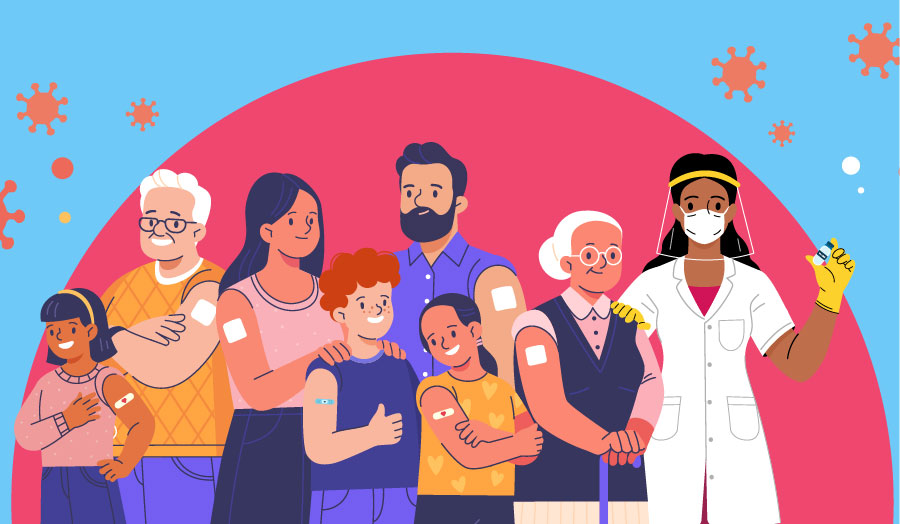Life-course immunisation and the flu vaccine
Do you know what life-course immunisation is? Life-course immunisation is an immunisation approach that responds to a person’s life stage and the specific health risks they can face(1). For example, all EU countries have a childhood vaccination schedule including measles, mumps, rubella, whooping cough, etc. When the child becomes an adolescent, the human papillomavirus vaccine is available to them(2). Later on in life, when you become an older adult or develop a chronic health condition, the yearly seasonal flu vaccine is recommended(2). In a nutshell, life-course immunisation helps you build up your immunity against different vaccine preventable diseases as you age.
Flu vaccine coverage
The World Health Organisation and the European Center for Disease Prevention and Control both suggest giving the flu vaccine to older adults, who are at a higher risk of developing flu complications(3). Why? Because the influenza vaccine is the most effective way to prevent the flu(4)! The goal is to have a 75% influenza vaccine coverage rate among older adults(3). However, many European countries, including France (59.9% in 2021), Germany (47.3% in 2021) and The Netherlands (72.6% in 2021), still fall short of this target(5).
Life-course immunisation and the flu vaccine
The main reason for immunisation is to protect the more vulnerable members of our population(6). This includes older adults, but also people with chronic health conditions, pregnant women and children between the age of 6 months and 5 years(4). Unfortunately, these at-risk groups are not consistently receiving flu vaccination recommendations. Data shows that only 48% of older adults, 41% of people with chronic health conditions, and 2% of pregnant women in Europe receive flu vaccination recommendations(7). Life-course immunisation can save up to 40,000 European lives each year, preventing early deaths caused by the flu(7).
Ask your healthcare provider or pharmacist for flu vaccine information
Healthcare professionals play an important role in flu vaccine uptake as they can recommend the flu vaccine to their patients(8). If your healthcare provider did not speak to you about the flu vaccine, you can ask them about it! Even if you are not at risk of developing serious flu-related complications, the influenza virus can still cause you to feel severely unwell and lead you to miss work or social engagements(6). Many people in Europe choose to get immunised regardless of a vaccine invitation or recommendation from their healthcare providers(6). This winter, ask your healthcare provider about the flu vaccine, and make an informed decision.
Sources
(1) Immunization Agenda 2023 – A global strategy to leave no one behind. WHO and IA2023. Available at: https://www.who.int/docs/default-source/immunization/strategy/ia2030/ia2030-document-en.pdf Accessed on 20 September 2023
(2) Vaccination schedules in the EU/EEA. European Vaccination Portal. Available at: https://vaccination-info.eu/…/when-vaccinate/vaccination-schedules-eueea Accessed on 20 September 2023
(3) Influenza vaccination coverage rates in the EU/EEA. ECDC. Available at: https://www.ecdc.europa.eu/…/vaccination-coverage. Accessed on 20 September 2023.
(4) Seasonal influenza vaccines. ECDC. Available at: https://www.ecdc.europa.eu/…/seasonal-influenza-vaccines Accessed on 20 September 2023
(5) Vaccination against influenza of population aged 65 and over. Eurostat. Available at: https://ec.europa.eu/eurostat/databrowser/view/hlth_ps_immu/default/table Accessed on: 20 September 2023
(6) Seasonal influenza vaccination strategies. ECDC. Available at: https://www.ecdc.europa.eu/…/vaccination-strategies Accessed on: 20 September 2023
(7) Lifecourse vaccination in Europe: Influenza prevention. Euractiv. Available at: https://www.euractiv.com/…/lifecourse-vaccination-in-europe-influenza-prevention/ Accessed on: 24 September 2023.
(8) Factors influencing healthcare professionals’ confidence in vaccination in Europe: a literature review. NCBI. Available at: https://www.ncbi.nlm.nih.gov/pmc/articles/PMC9009961/ Accessed on 30 September 2023.






Leave a comment